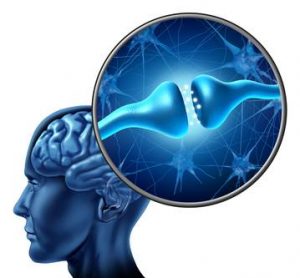Anger is a powerful emotion that, when left unchecked, can significantly affect our well-being and relationships.
The struggle to manage anger effectively can be overwhelming and debilitating, impacting every aspect of our lives. However, there is hope.
In this blog post, I invite you to join me on a journey of self-discovery and transformation as we explore the intricacies of anger management. Together, we’ll delve into understanding the roots of anger, identifying triggers, and reshaping automatic responses.
Let’s embark on this journey towards sustainable change and improved relationships, empowering ourselves to navigate life’s challenges with grace and resilience.
Understanding Anger
Exploring the depths of anger and understanding its triggers, manifestations, and impact on emotional intelligence and stress management is crucial for fostering healthy emotions and addressing underlying anger issues.
When looking into the complexities of anger, one may encounter many factors contributing to its intensity, ranging from past traumas and unmet expectations to ongoing conflicts and unresolved emotions. Anger is a natural human emotion that can serve as a signal for deeper underlying issues that warrant attention. Recognising and acknowledging these triggers is the first step towards effective anger management.
Through self-awareness and introspection, individuals can develop coping mechanisms to regulate their emotions and respond constructively to provocations. Cultivating emotional intelligence plays a pivotal role in navigating the turbulent waters of anger, as it enables individuals to understand their emotions, empathise with others, and make informed decisions rather than impulsively.

How Hypnotherapy and NLP Helps in Managing Your Anger
Discover the transformative power of Hypnotherapy and NLPin addressing anger management issues, enhancing emotional awareness, and preventing anger escalation, leading to effective stress management and emotional well-being.
Hypnotherapy & NLP offer individuals a unique opportunity to delve deep into their subconscious minds, uncovering the root causes of anger and untangling emotional triggers.
By promoting deep relaxation and heightened focus, hypnotherapy & NLP enable individuals to gain a new perspective on their emotions, fostering a sense of control and enablement.
Through guided visualisation and positive suggestion, they equip individuals with tools to shift their responses to anger-inducing situations, fostering healthier coping mechanisms and improved emotional regulation.
Uncovering Triggers
Exploring the underlying triggers of anger, including past experiences, personal signs, and emotional intensity, is essential for addressing deep-rooted issues such as domestic violence and anger management problems.
Understanding one’s signs of anger, whether a racing heart, clenched fists, or a tight jaw, can serve as crucial cues to intervene before escalating into destructive behaviour.
Moreover, emotional intensity plays a significant role in responding to triggers, as heightened emotions can cloud judgment and lead to impulsive reactions.
Delving into past experiences that have shaped one’s relationship with anger can unveil patterns and beliefs that fuel destructive responses, shedding light on the complexity of domestic violence and unresolved emotional wounds.

Rewiring Automatic Responses
By rewiring automatic responses through techniques like assertive communication, forgiveness, and stress level management, individuals can gain better control over their anger and foster healthier relationships.
- Assertive communication plays a vital role in expressing feelings and needs without aggression, reducing the likelihood of escalating conflicts. Through practising active listening and non-violent language, individuals cultivate a more respectful and constructive way of dealing with anger triggers.
- Forgiveness, another key aspect of anger management, allows individuals to let go of grudges and break the cycle of resentment. One can reduce internal turmoil and facilitate emotional healing by shifting focus from harbouring negative emotions to understanding and empathy.
- Stress management, involving techniques like deep breathing, mindfulness, and physical exercise, equips individuals with tools to regulate their emotions and respond more calmly in triggering situations. By addressing underlying stressors, individuals can prevent anger from boiling over and maintain composure during conflicts.
Healing Past Wounds
Healing past emotional wounds through forgiveness, realistic perspectives, and tension-release strategies can pave the way for emotional growth, resilience, and long-term anger management.
Emotional wounds from past experiences often hinder living a fulfilling and balanced life. By embracing forgiveness, individuals release the heavy burden of resentment and grudges, allowing space for healing and compassion to flourish. Adopting realistic perspectives helps in reframing negative beliefs and perceptions that contribute to ongoing anger issues, fostering a healthier mindset.
Integrating tension-release techniques like mindfulness, deep breathing, or physical exercise provides practical tools to manage stress and diffuse escalating emotions. Such practices offer immediate relief and work towards preventing future anger outbursts, creating a sustainable path towards emotional well-being.
Enhancing Emotional Awareness
Enhancing emotional awareness through relaxation techniques and positive coping mechanisms can help individuals address underlying anger problems, navigate emotional issues, and respond to challenges in a positive way.
By acknowledging and understanding their feelings, individuals can gain insight into the root causes of their anger, allowing them to develop effective strategies for managing their emotions.
This heightened self-awareness enables individuals to recognise triggers that lead to anger outbursts and proactively implement calming techniques such as deep breathing exercises or mindfulness practices.
Fostering positive outlets for emotional expression, like journaling or talking to a trusted friend, can further support individuals in processing and regulating their emotions.

Benefits of Hypnotherapy and NLP for Managing Anger
Discover the profound benefits of Hypnotherapy and NLP for managing anger, including sustainable behaviour change, personalised approaches, enablement in self-regulation, and expert guidance from mental health specialists.
Hypnotherapy and NLP offer a holistic approach to anger management that goes beyond merely addressing surface-level symptoms. Looking into the subconscious mind helps individuals uncover the root causes of their anger issues, enabling long-lasting transformation. With personalised treatment plans tailored to each person’s unique needs, hypnotherapy fosters a sense of enablement and autonomy in mastering self-regulation techniques. Mental health specialists skilled in Hypnotherapy and NLP provide invaluable support and guidance, navigating clients through their emotional triggers and facilitating profound behavioural shifts.
Sustainable Change
Achieving sustainable change in anger management involves addressing underlying factors, managing emotional intensity, and fostering healthy responses to triggers and stressors.
Identifying the root causes of anger is crucial in creating lasting change. By looking into the underlying factors, individuals can gain insight into why they may be reacting in a certain way.
This process allows them to develop self-awareness and recognise patterns of behaviour that contribute to their anger. Recognising and acknowledging these triggers is the first step towards regaining control over emotional responses.

Tailored Approach
A tailored approach to anger management involves recognising personal signs, developing relaxation skills, and mastering self-control techniques to navigate challenging situations and regulate emotional responses effectively.
When individuals take the time to understand their triggers and responses to anger, they gain an invaluable tool for managing their emotions. By honing in on recognising personal signs, individuals can proactively identify when their anger is escalating and intervene before it reaches a boiling point. This self-awareness allows for early intervention and helps build self-control techniques that can be utilised in real-time situations.
Empowerment
Empowerment through expressing feelings, fostering positive emotions, managing stress levels, and practising assertive communication techniques can enable individuals to take charge of their anger responses and enhance emotional well-being.
When individuals become adept at recognising and acknowledging their emotions, they gain greater control and self-awareness. This awareness enables them to respond to triggers more constructively, reducing emotional reactivity and increasing emotional resilience. By nurturing positivity and fostering a growth mindset, individuals can focus on proactive problem-solving rather than reactive outbursts. Effective stress management techniques, such as mindfulness practices or physical exercise, provide tools for individuals to ground themselves and prevent escalation of anger.

Improved Relationships
Enhancing anger management skills leads to improved relationships through conflict resolution, forgiveness, healthy communication practices, and the ability to express emotions constructively.
Individuals who develop enhanced anger management capabilities are better equipped to navigate through disagreements and disputes with greater ease and humility. By integrating effective conflict resolution techniques into their interactions, they can address issues calmly and find amicable solutions. Forgiveness plays a crucial role in fostering understanding and moving forward positively in relationships, allowing for healing and growth. Employing healthy communication strategies such as active listening and assertiveness enables parties to express their thoughts and emotions clearly, fostering mutual respect and empathy.
What to Expect from a Hypnotherapy and NLP Session for Anger?
A Hypnotherapy and NLP session for anger management offers a safe space to explore relaxation techniques, enhance emotional awareness, and develop effective strategies for anger control in a supportive and guided environment.
During the session, the Hypnotherapist / Behavioural Change Professional may begin by guiding the individual into a state of deep relaxation, using techniques such as progressive muscle relaxation or visualization. This helps the person to calm their mind and body, laying the foundation for further exploration.
Emotional awareness is a key component of the session, as the individual is encouraged to identify and acknowledge their emotions without judgment. This process allows for a deeper understanding of the triggers behind the anger responses.
As the session progresses, the hypnotherapist? Behavioural Change Professional may introduce strategies for anger control, such as mental imagery to defuse anger, cognitive reframing to challenge negative thought patterns, and anchoring techniques to create a sense of calm and control in triggering situations.

Practical Tips for Managing Anger
Practical tips for managing anger include deep breathing exercises, mindfulness meditation practices, engaging in physical activity, improving communication skills, and seeking support from trusted individuals or professionals.
Integrating deep breathing exercises into your daily routine can help you maintain calm during stressful situations.
Mindfulness meditation can assist in enhancing self-awareness and regulating emotions effectively.
Regular physical activity, such as yoga or jogging, can release built-up tension in the body.
Communication strategies like active listening and assertiveness can aid in expressing feelings constructively.
Don’t hesitate to seek support from friends, family, or a therapist to navigate challenging emotions.
Deep Breathing
Deep breathing exercises are powerful tools for releasing tension, enhancing relaxation skills, promoting a sense of calmness, and aiding in anger control during challenging situations.
When faced with anger-triggering circumstances, focusing on your breath can act as a natural regulator, helping to diffuse intense emotions. Engaging in deep breaths allows oxygen to flow to your brain, which activates your body’s relaxation response, lowering blood pressure and heart rate.
This physiological response calms your mind and helps sharpen your focus and problem-solving abilities, enabling you to approach challenging situations with a clearer perspective. Practising deep breathing regularly can enhance your overall emotional well-being, reducing stress levels and promoting a greater sense of inner peace and resilience.

Mindfulness Meditation
Mindfulness meditation helps individuals manage emotional intensity, cultivate relaxation techniques, address underlying emotional issues, and adopt healthy coping mechanisms for long-term well-being and anger management.
When individuals engage in mindfulness meditation practices, they learn to observe their emotions without judgement, allowing them greater control over their reactions and preventing anger escalations. By increasing self-awareness, individuals become more attuned to their emotional triggers and can develop strategies to respond in a calmer, more constructive manner. Through the cultivation of mindfulness, individuals can also enhance their ability to relax and unwind, reducing overall stress levels that often contribute to heightened states of anger.
Physical Activity
Physical activity is a beneficial way to channel anger, improve anger control, release tension, and manage stress effectively, promoting overall emotional well-being and resilience.
Physical activity offers an outlet for negative emotions like anger and assists in regulating emotional responses, leading to a more balanced state of mind. By taking part in regular exercise, individuals can decrease their likelihood of experiencing intense anger outbursts and instead develop a healthier approach to managing their emotions.
By releasing endorphins during physical exertion, individuals can experience a natural mood lift, reducing feelings of stress and anxiety while enhancing their emotional well-being and resilience against everyday challenges.

Effective Communication
Mastering effective communication skills, including assertive approaches, conflict resolution techniques, addressing anger issues, and practising forgiveness, can significantly improve interpersonal dynamics and emotional well-being.
When individuals are adept at assertive communication, they can express their thoughts and feelings clearly and confidently without infringing on others’ rights. By using conflict resolution strategies, disagreements can be handled constructively, fostering understanding and cooperation.
- Addressing anger issues through open and honest dialogue helps prevent escalation and promotes emotional regulation.
- Practicing forgiveness plays a crucial role in releasing pent-up resentment and building healthier, more resilient relationships.
Seek Support
Seeking support from mental health specialists, therapy sessions, anger management classes, or trusted individuals can provide valuable guidance and assistance in navigating emotional issues and developing effective anger management strategies.
Professional guidance in anger management encompasses a wealth of benefits. Mental health specialists offer tailored strategies to address negative emotions, build resilience, and foster emotional wellness.
Therapy sessions provide a safe space to explore triggers, develop coping mechanisms, and enhance self-awareness, leading to healthier emotional responses.
Specialised anger management classes equip individuals with practical tools and techniques to manage anger constructively.
Trusted individuals, such as friends, family, or mentors, are crucial in providing empathy, support, and encouragement in addressing emotional challenges and fostering positive behavioural changes.

Summary
Effective anger management involves strategies for stress management, enhancing emotional intelligence, seeking therapy when needed, and developing skills to control anger responses healthily and constructively.
Stress management techniques play a crucial role in anger management by helping individuals identify triggers and adopt coping mechanisms. Cultivating emotional intelligence allows for better self-awareness and empathy towards others, reducing the intensity of anger reactions. Therapy can provide valuable tools and insights for addressing underlying emotional issues contributing to anger. To maintain emotional well-being, it is essential to prioritise controlling anger through healthy approaches, such as communication, relaxation techniques, and cognitive restructuring.

Frequently Asked Questions
How can I manage my anger effectively?
Managing your anger effectively starts with recognising and acknowledging your triggers. It’s important to identify what situations, people, or thoughts make you angry and find healthy ways to cope with those triggers. Some techniques that can help manage anger include deep breathing, mindfulness, and talking to a trusted friend or therapist.
Why is it important to manage my anger?
Managing your anger is crucial for your emotional and physical well-being. Uncontrolled anger can negatively impact your relationships, work, and overall quality of life. It can also lead to physical symptoms such as high blood pressure and an increased risk of heart disease. Learning how to manage your anger can help you live a healthier and happier life.
How can Hypnotherapy and NLP help me manage my anger?
Hypnotherapy and NLP are powerful tools for managing anger because it works on a subconscious level. During a session, I can help you identify the root cause of your anger and then work on replacing negative thought patterns with more positive and productive ones. This can help you manage your anger more effectively and improve your well-being.
Is it possible to completely get rid of anger?
While it’s natural and normal to experience anger, it is not healthy to eliminate it. Anger is a valid emotion that can motivate us to make positive life changes. The key is to learn how to express and manage it healthily. Hypnotherapy and NLP can help you do this by teaching you techniques to control your anger and prevent it from escalating.
What are some other tips for managing anger?
In addition to seeking professional help, there are several things you can do to manage your anger. Some tips include practising relaxation techniques such as yoga or meditation, engaging in physical activity, expressing your feelings through journaling or art, and making time for self-care activities that bring you joy and calmness.
How long does it take to see results in managing my anger through Hypnotherapy and NLP?
The length of time it takes to see results may vary depending on the individual. Some people may see improvements immediately or after just a few sessions, while others may take longer. It’s important to be patient and committed to the process. With consistent practice and a positive mindset, you can learn to manage your anger and live a more fulfilling life


